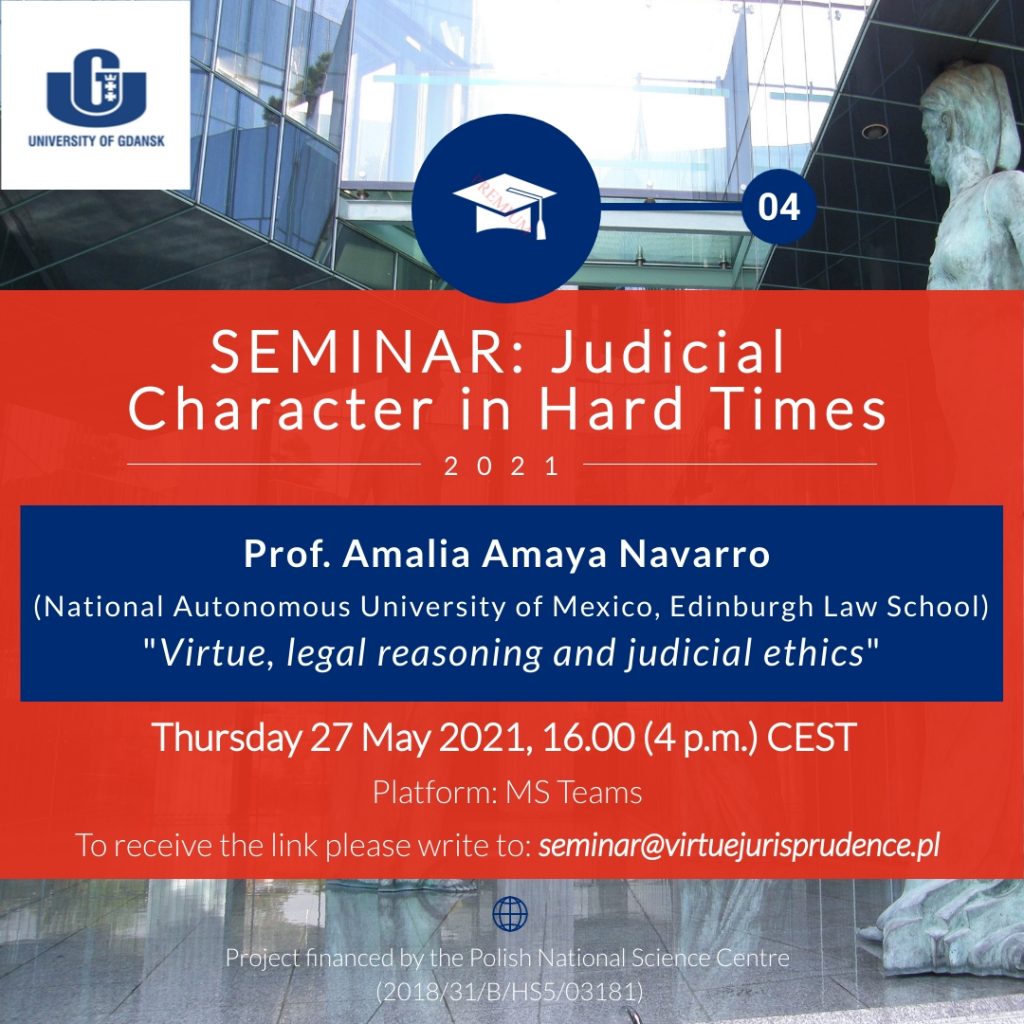The keynote speaker for the fourth meeting of the Seminar “Judicial Character in Hard Times” will be Prof. Amalia Amaya Navarro, Research Professor at the Institute for Philosophical Research at the National Autonomous University of Mexico and British Academy Global Professor at the Edinburgh Law School.
The lecture titled Virtue, legal reasoning and judicial ethics takes place on the 27th of May 2021 at 4 p.m. (16.00) CEST.
Amalia Amaya joined the School of Law at Edinburgh University in 2019 with a British Academy Global Professorship Award. Professor Amaya completed a B.A. in Law at the University of Alicante and a B.A. in Linguistics at the University of Barcelone. She obtained an LLM and a PhD from the European University Institute and an LLM and a SJD from Harvard Law School. In 2007 she joined the Institute for Philosophical Research at the National Autonomous University of Mexico, where she has a position as Research Professor. She has also held visiting appointments at the University of Texas at Austin, University College at Oxford University, and Queen Mary University of London.

Professor Amaya works primarily in philosophy of law, with a particular focus on legal reasoning and epistemology, theories of justice, and international normative theory. Her prior work has aimed at analyzing the role of coherence in legal reasoning. The main outcome of this research is the book The Tapestry of Reason (2015). Professor Amaya’s current research project is on law, virtue and character. On this topic, she has co-edited Law, Virtue and Justice (with Ho Hock Lai, 2012), The Faces of Virtue in Law (with Claudio Michelon, 2020) and Virtue, Emotion and Imagination in Legal Reasoning (with Maksymilian del Mar, 2020). She is now working on a book manuscript that seeks to develop a virtue approach to legal reasoning and judicial ethics. She is also interested in exploring the role of exemplarity in contemporary legal and political culture and, especially, its implications for problems concerning the nature of authority at both the domestic and the global level. In addition, she is engaged in research on fraternity as a legal and political ideal, which addresses the conceptual, practical, and institutional dimensions of the idea of fraternity.